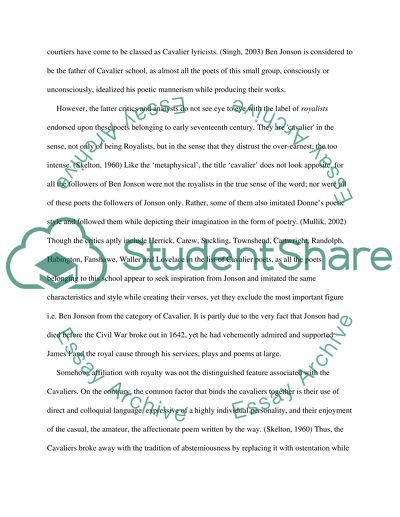Cite this document
(“Metaphysical and Cavalier 17th century poetry Essay”, n.d.)
Retrieved from https://studentshare.org/literature/1419236-metaphysical-and-cavalier-17th-century-poetry
Retrieved from https://studentshare.org/literature/1419236-metaphysical-and-cavalier-17th-century-poetry
(Metaphysical and Cavalier 17th Century Poetry Essay)
https://studentshare.org/literature/1419236-metaphysical-and-cavalier-17th-century-poetry.
https://studentshare.org/literature/1419236-metaphysical-and-cavalier-17th-century-poetry.
“Metaphysical and Cavalier 17th Century Poetry Essay”, n.d. https://studentshare.org/literature/1419236-metaphysical-and-cavalier-17th-century-poetry.


